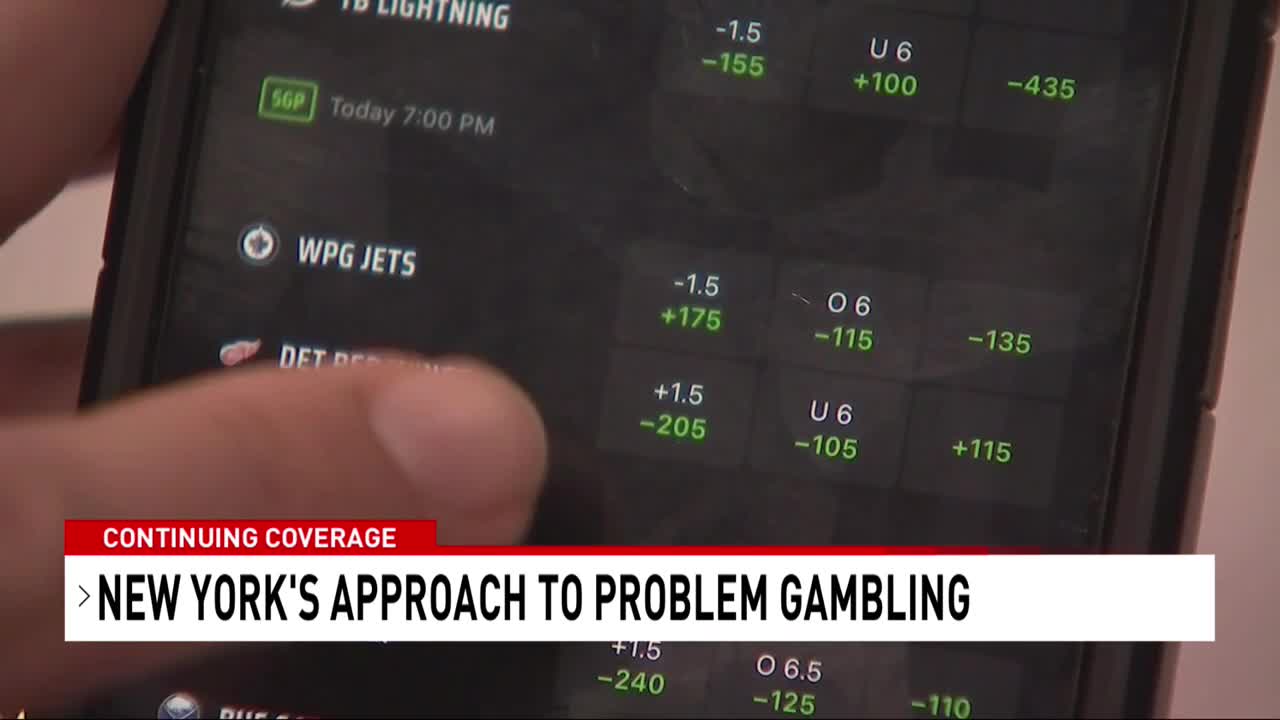Albany — At the Capital on Wednesday, the New York State Gaming Commission Executive Director asked lawmakers if the current approach to problem gambling goes far enough.
“Earlier this year, when I addressed the New York Council on Problem Gambling’s annual conference, I raised concern with the traditional approach to problem gambling intervention in the United States, in general, we provide awareness of harms associated with problem gambling and improve access to services where somebody may find help. That’s important, but is it enough?” Robert Williams said.
He says, in addition to that approach, the State should also look at shifting the responsibility from the individuals, to the gaming operators. He compared it to alcohol, saying a bartender has a duty to cut someone off if they believe they’ve had too much to drink.
In his testimony at Wednesday’s Public Hearing: Combatting Problem Gambling on Mobile Wagering Platforms, Williams cited a New Jersey proposal from September, which would require gambling operators to monitor and intervene when betters are defined to be at risk. He listed off a variety of signals in the proposal which included money spent, bets placed and more. And if the right parameters were met, a due diligence check would be triggered. If that is the case, interventions would include informational video requirements, phone discussions about available problem gambling information, and treatment like counseling.
“I understand it’s a nice turn of phrase to suggest that gambling is the silent addiction, but gambling is data rich, and that data has a voice, the data exists for every wager on mobile sports wagering, with most being able to be tracked back to the player loyalty cards, or the account wagering, most activity at a casino is through player rewards cards,” Williams said. “Does research and modeling suggest that there are behaviors that indicate a tipping point? Is the appropriate funding being directed to answer that question? More importantly, do operators have the fortitude to take actions without being required, or does government have the fortitude to require operator intervention, as I suggested, personal responsibility is generally a US thing.”
Williams listed out those proposed new rules in New Jersey at the Hearing:
-Customers would be monitored for being at risk if the patron deposits more than $10,000 in a 24 hour period, $100,000 over a 90 day period
-Accesses the operators self exclusion request page three or more times in a 30 day period, but fail to complete the self exclusion process
-Makes three consecutive increases to any responsible gaming limitations that are offered by the operator without any decreases within any seven day period
-Cancels withdrawal requests prior to processing three times within 10 day period
-Wagers more than $1 million in any 90 day period, logs into their account in one week at a rate 50% higher comparable to the two weeks prior
-Ends two or more gambling sessions in the same week with a balance of less than $1
-Concludes two or more sessions in the same week with an increase in the total number of wagers from the previous week

